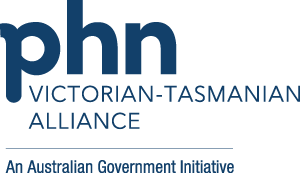Jessica Chung, the acting practice manager at IPC Health in Deer Park, still remembers what life was like in high school.
“It was a stressful time,” she laughs, “especially in the senior years!”
Jessica is part of the Victorian Government’s state-wide Doctors in Secondary Schools (DiSS) program – a multimillion dollar scheme that puts GP-nurse teams on campus once a week at 100 under-resourced schools in suburban, regional and remote locations.
DiSS clinics have been operating across the state since 2017. They complement existing student wellbeing programs aimed at improving health literacy and encouraging preventive health care. So far, the clinics have completed more than 55,700 consultations.
Having a doctor and nurse on site makes primary health care more accessible to students, who otherwise might face difficulties reaching their nearest medical centre, or receiving the care they need, when needed. Improving access to care also enables young people to identify and address any health problems early, and reduces the pressure on working parents and community-based GPs.
Each week Jessica finds that her DiSS training – which includes DiSS-specific modules on adolescent and mental health prepared by experts at the University of Melbourne – and her empathy combine to make the school clinic experience a very fulfilling one.
“I have learned that the practice nurse role within the Doctors in Secondary Schools program is more than just seeing students. It is a rewarding role! It’s certainly different to the usual GP clinic environment, in a good way.”

“Being in our portable on site at the school makes me feel like I am a part of the school community,” she says.
“It takes me out of my usual clinic environment, which is a very nice change. On my walks to the canteen, I meet students along the way and have some great conversations with them. And steamed dimmies from the canteen taste as good as I can remember on a cold day!”
Working with young people as they emerge from childhood into adulthood is rewarding, participants agree. Practices are expected to sign up to the project for a year, but most stay for at least two. Some practices take on more than one school once they start seeing the reward in watching the kids grow.
Nevertheless, from time to time vacancies arise.
For this reason, Primary Health Network are inviting eligible general practices to register their availability, ahead of possible opportunities. It’s like a rolling Expressions of Interest.
Many of the GPs and nurses who sign up for DiSS do so because it allows them to deepen their engagement with their communities. They get to talk with young people they might not necessarily ever get to meet at their clinic, and interacting with them in a more relaxed setting.
Others sometimes choose to set up in schools an hour or so distant from their usual practice. This allows them to get to know a new community, and some have seen this experience as a good way to test the waters ahead of relocating or expanding their practices.
For some, though, the motivation is just to try something different.

Dr Hannah Walker, for example, provides DiSS care at Mt Rowan Secondary School in the Victorian regional city of Ballarat.
She decided to join the project in 2021 – in part, to keep her own professional life fresh.
“I wanted to keep my practice varied,” she says. “I wanted to challenge myself and do something different to my speciality – which is palliative care.
“I’m a GP at UFS Medical in Ballarat. I think you can be very cushioned in your exposure to the community, so it’s important to expose yourself to different environments. To keep going, you have to push yourself and change things around.”
DiSS teams also often report that they find the experience of operating at a school to be refreshingly different to the ways in which they work for the rest of the week.
Dr Joanne Dennis has been at the heart of the DiSS team at Wedderburn High School for several years, seeing kids journey through high school from Year 7 to 12.
“It’s very well supported here,” she says. “It’s just a really wonderful feeling to be here and to be working in the program.
“When you’re working in a normal clinic, you’re pretty much just seeing one patient after the other, and you don’t have a chance to sort of talk about things with other people. Here at the school, we get to talk to everyone – maybe some teachers or the school nurse or the student support and wellbeing team.
“And we’ve got more time to spend with the kids as well. We have either half-hour or hour-long appointments, and we get to really be able to try to solve and delve into problems.”
Many doctors and nurses say that getting involved with a young patient cohort away from the confines of a normal clinic is truly a life-changing experience. Across Victoria there are always a handful of schools temporarily without a DiSS team due to previous teams moving on for personal or professional reasons.
Doctors, nurses or practice managers keen to find out about DiSS opportunities in their area – or to signal their interest for doing so in the future – should go here.

